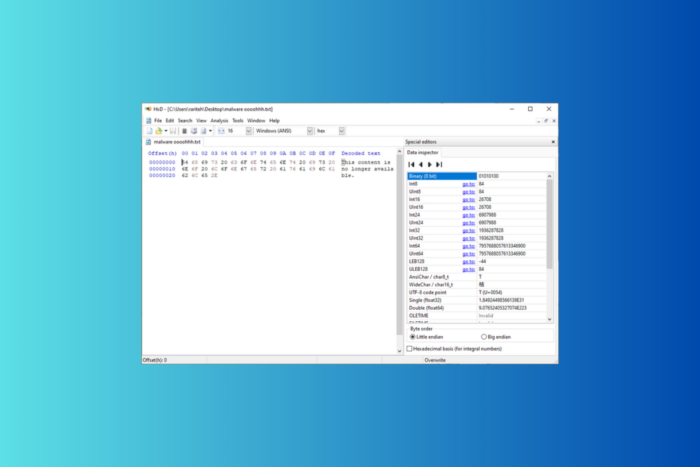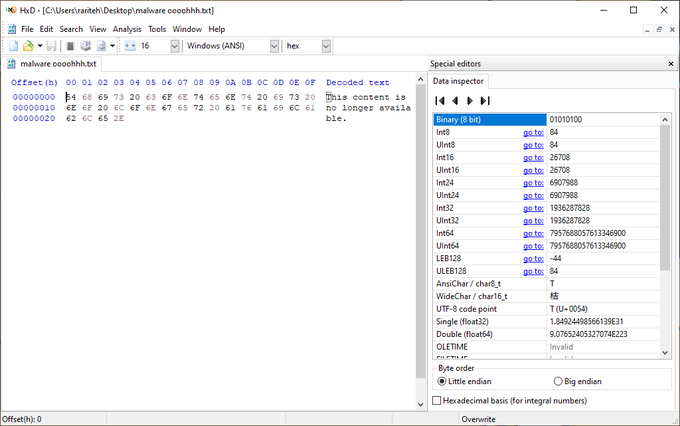Avoid using this phrase in your text file; Microsoft Defender could consider it a threat
It flagged the text file as Trojan:Win32/Casdet!rfn
2 min. read
Published on
Read our disclosure page to find out how can you help Windows Report sustain the editorial team. Read more

Microsoft Windows Defender has improved greatly since the inception of Windows 10 and is considered a reliable security tool for the average user.
However, a bug spotted by yappy, an X user, indicates that Microsoft Windows Defender can act faster than necessary in an attempt to secure your computer.
Here is what the post by Yappy says:
my gf just found out that a text file solely containing the string “This content is no longer available.” trips up windows defender lol
In this image he shared, we can see the phrase This content is no longer available in a Notepad. When this file is saved as a text file on the computer, Microsoft Defender flags it as a Trojan:Win32/Casdet!rfn and removes it without warning, irrespective of the file name. The act is claimed to protect your device from potential severe threats.
Upon further research and investigation, Yappy and other Xers found that the SHA-256 collision caused this false positive. This could be because serious threats usually have this headlining text string and, therefore, were detected as threats by the Defender detection engine.
This is not the first time Microsoft Defender has missed a step; there have been instances in the past. Overall, Microsoft Windows Defender is a decent antivirus tool. Also, this bug is not serious, and if you add another text, even a punctuation or extra space, it will no longer be detected as a threat.
In other news, you can check out the threat explorer’s latest feature, which allows it to become a hub for direct cyber protection actions.
We hope Microsoft acknowledges this bug and fixes it soon. Have you tried creating a file with the same phrase? If so, share your experience with our readers in the comments section below.










User forum
0 messages